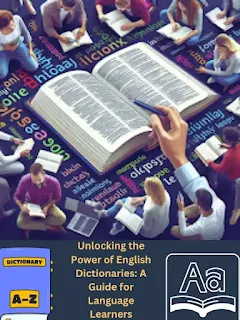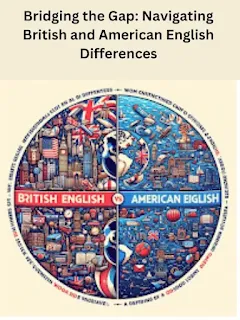
Portal
It isn't significant regardless of whether you're a local English speaker; using an English dictionary might assist you with getting more capable in vocabulary, grammar, and correspondence overall. In any case, with so many dictionaries promptly open, it very well may be difficult to sort out the right one for what you need. In the accompanying sections, each sort of English dictionary that is accessible, as well as their planned applications, will be tended to.

The Authority of Dictionaries
At some point, you have probably been told to “use the dictionary.” The word “the” implies that only one dictionary exists. There are, in fact, numerous English dictionaries; some are excellent, while many are subpar. Not even one of them is 'the preeminent authority' that promoters might guarantee. English has never been regulated, approved, or authorized by an academy or government ministry, unlike some other languages. An English word reference is just a record of how English speakers characterise, articulate, spell, and utilise the expressions of their language. An English dictionary's completeness, accuracy in reporting the facts, and recent publication are the sole sources of authority.

British and American English
The difference between British and American English frequently worries international students. Albeit these distinctions may be confounding from the get-go, they are not adequately various or critical to stress over. A good dictionary will indicate alternate British or American pronunciations, spellings, and meanings wherever there are differences. Both positions are correct.

Exploring Various Dictionary Types
Desk Dictionaries
Desk dictionaries are small reference books with an extensive list of terms and all the relevant information about pronunciation, definitions, and other aspects. Desk dictionaries come in three varieties: abridged, abridged, and abridgement of abridgement.

Unabridged Dictionaries
Unabridged dictionaries are exhaustive and remember each word for a language completely. They offer comprehensive details on every word, such as synonyms, usage examples, etymologies, and several definitions. The following three names are recommended for unabridged dictionaries:
1. The Oxford English Dictionary
2. The Third New International Dictionary of Webster
3. The English Language Dictionary, published by Random House

Abridged Dictionaries
Condensed versions of unabridged dictionaries are known as abridged dictionaries. Their definitions are more condensed and straightforward, and they have fewer entries overall. Compared to unabridged dictionaries, they are more portable and made for instant reference. Suggested titles for British dictionaries under abridged dictionaries are:
1. Collins English Dictionary
2. The Longman Dictionary of Contemporary English
3. The Oxford Advanced Learner's Dictionary of English

Abridgement of abridgement Dictionaries
A sort of dictionary known as an abridgement of an abridgement provides only the most crucial details about a word. Their use is not advised due to their limited informational content, which may be erroneous or incomplete. They are not recommended since they frequently exclude crucial information that can aid users in understanding a term in its entirety, such as synonyms or use examples. For more thorough and reliable information, it is therefore advised to use dictionaries, whether they are abridged or unabridged.

What A Dictionary Will Tell You?
A dictionary is a reference work that offers word definitions in a particular language. Below is a detailed inventory of all the data that a dictionary usually offers:
1. Term Definition: The dictionary gives the definition(s) of the term, together with information on the various parts of speech and how they are defined.
2. Synonyms: Synonyms are terms with related meanings that the dictionary may supply.
3. Antonyms: words that have opposite meanings are also included in dictionaries.
4. Word derivation and origin: The word reference gives data about the word and its semantic roots, authentic turn of events, first use, language of the origin, and periods.
5. Pronunciation: The dictionary might give the term's phonetic spelling, which represents each sound in the word with a symbol. Additionally, it might offer audio pronunciation help.
6. Syllable Division: For pronunciation, the dictionary might incorporate the word's syllable division, which demonstrates where the word is parted into syllables.
7. Word Usage: Illustrative sentences including the word's colloquial and idiomatic phrases may be found in the dictionary.
8. Term Frequency: A dictionary can tell you how frequently a term is used, showing how common or uncommon it is in regular speech.
9. Word Forms: The dictionary may offer details on a word's several incarnations, including compound, inflexion, and derivative forms.
10. Related Words: The dictionary may offer details on words that are related, such as synonyms or terms with related meanings, as well as words that have different meanings but the same spelling or pronunciation.

It is important to keep in mind that not all dictionaries have every definition listed above and that some may offer further details not included here.
Unlocking the Language Labyrinth: Final Thoughts

To sum up, everyone trying to get better at the English language will find that consulting an English dictionary is a vital resource. Learn new terms, their definitions, and their fitting use in a range of circumstances with this precious asset. Your vocabulary will develop, your correspondence capacities will improve, and your overall comprehension of English will get more grounded with the assistance of an English dictionary.
FAQs (Frequently Asked Questions)
What is the motivation behind an English dictionary?
The English dictionary fills in as a source of perspective, giving definitions, pronunciations, and other significant data about words in the English language.
By consulting an English dictionary, people can extend their jargon, upgrade how they might interpret word implications, and further develop their relational abilities.
Indeed, English dictionaries come in different sorts, including complete, condensed, bilingual, monolingual, and particular word references custom-fitted to explicit fields or ventures.
English dictionaries offer complete subtleties, including definitions, synonyms, antonyms, word origins, pronunciations, usage examples, and information on word forms.
Indeed, English dictionaries frequently incorporate phonetic spellings and sound elocution advisers to help clients pronounce words accurately.
Respectable English word dictionaries are distributed by trusted sources and go through thorough altering and confirmation cycles to guarantee exactness and unwavering quality.
Indeed, numerous English dictionaries have online partners, giving helpful access to word reference assets, search capabilities, and extra elements like the expression of the day.
Unquestionably, English dictionaries frequently remember instances of informal expressions for setting, assisting clients with getting a handle on their implications and utilisation.
Indeed, particular English dictionaries take care of different fields like medicine, law, finance, and technology, offering itemised definitions and phrasing applicable to those businesses.
To amplify the advantages of utilising an English dictionary, effectively draw in passages by understanding definitions, investigating synonyms and antonyms, and integrating newly learned words into daily language practice.